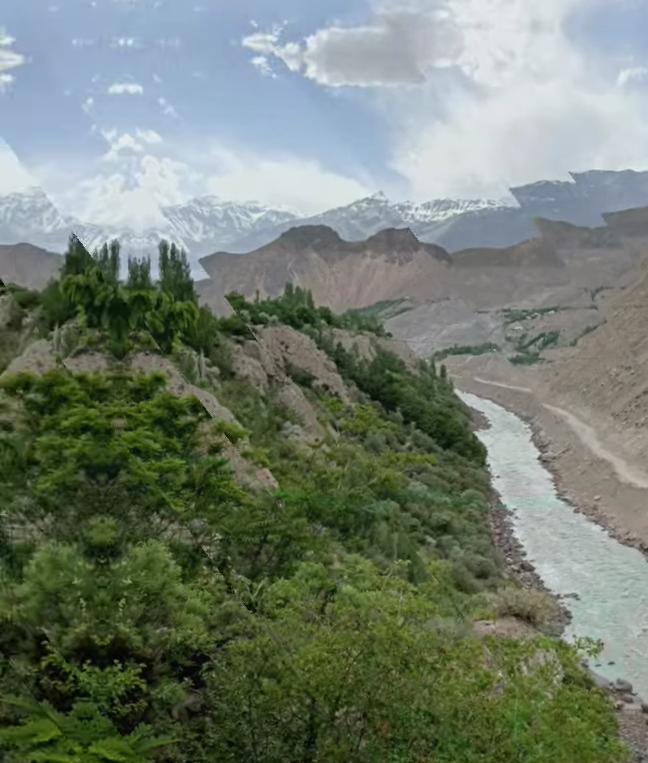PM and Authorities Urged to Take Immediate Action: Nasir Ali Shah
Upper Chitral: The headquarters of Upper Chitral, Boni, is facing an imminent threat of being eroded by the river. Prominent social activist Nasir Ali Shah has called upon the Prime Minister of Pakistan, Chief Minister of Khyber Pakhtunkhwa, Minister for Tourism, and the Minister for Climate Change and Environment to take immediate notice and emergency measures to protect Boni and its surrounding areas from devastating landslides.
According to Nasir Ali Shah, Boni is internationally known for its natural beauty, lush landscapes, springs, and fruit orchards. However, over the past two years, land erosion into the river has continued unchecked, and neither elected representatives nor relevant authorities have paid any attention to the issue.
He stated that during the construction of the Chitral-Shandur Road, the contractor negligently dumped all the debris into the river, violating environmental regulations. As a result, the river’s flow has shifted towards Boni, significantly accelerating the erosion process.
Nasir Ali Shah warned that if timely action is not taken, nearly 2,000 acres of agricultural land in areas including Boni Lasht, Tek Lasht, Dokanda, and Bolan Lasht could be affected. Approximately 300 households are at risk of displacement. Furthermore, over 12,000 trees and plants are in danger of being uprooted, which would exacerbate global warming.
He emphasized that the destruction of forests would disrupt the natural habitats of birds, foxes, wolves, and other wildlife, potentially leading to extinction. The loss of land could also affect nearby glaciers, accelerating their melting.
Nasir Ali Shah put forward the following demands to the concerned authorities:
Immediate removal of debris dumped into the river to restore the natural flow of water.
Construction of a strong protective embankment to halt further land erosion and prevent additional damage.
He warned that without prompt action, Boni’s future could be even more at risk than Ration, and rehabilitation of the affected population would pose a major challenge for the government.

